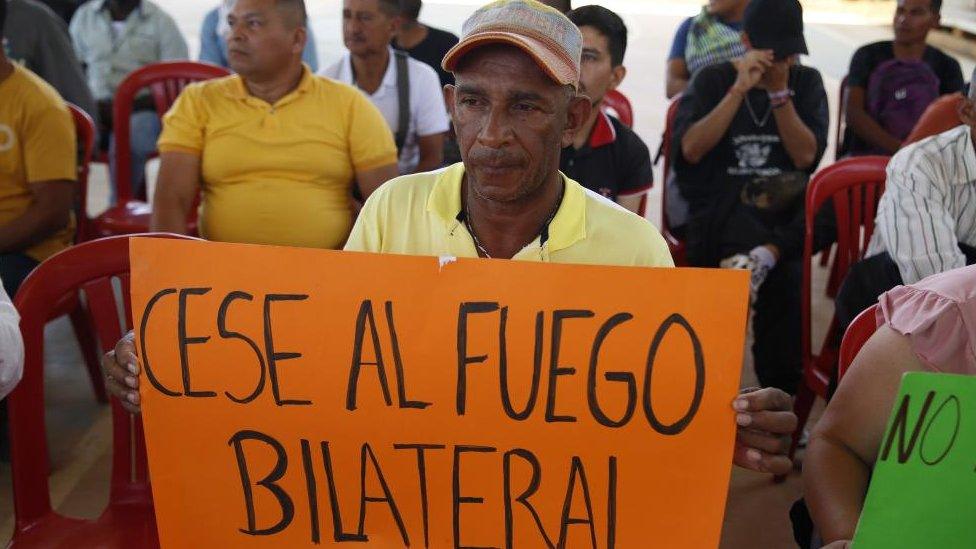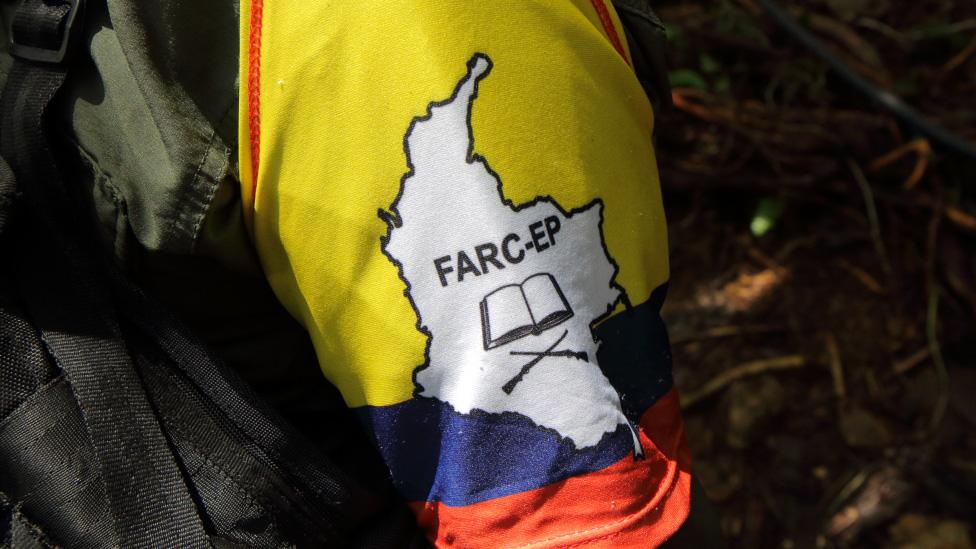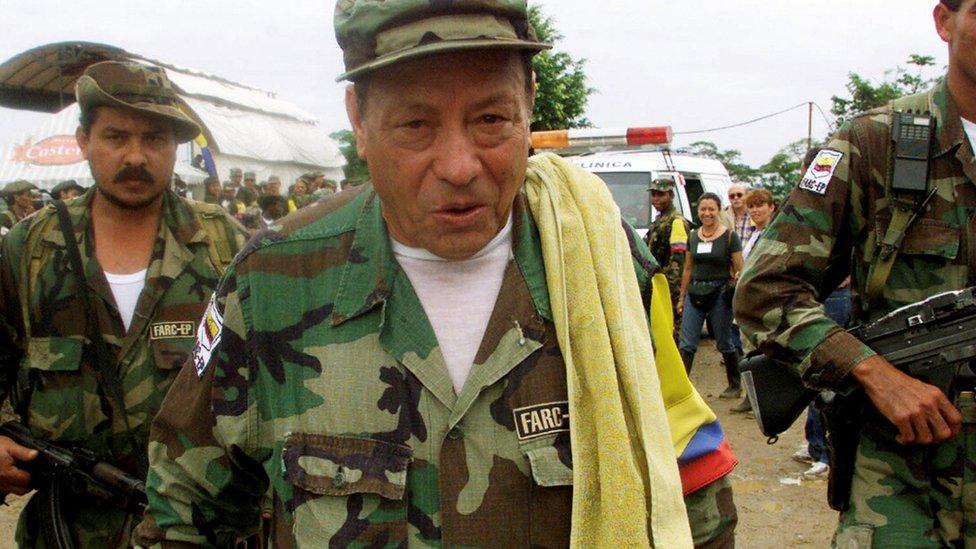Colombian government and dissident rebels agree to ceasefire
- Published

The Colombian government and the left-wing rebel group; EMC-Farc have agreed to resume peace talks and implement a 10-month ceasefire.
The EMC-Farc is an off-shoot of the Revolutionary Armed Forces of Colombia (Farc), a group formed in the 1960's as the armed wing of the Communist Party.
It is made up of left-wing rebels who refused to lay down their arms when the Farc leadership signed a peace deal in 2016.
The ceasefire will begin on 8 October.
The first round of negotiations with the EMC will be held in the north-eastern town of Tibú, near the border with Venezuela.
Colombian President Gustavo Petro, a former Marxist rebel himself, has promised to break Colombia's historic cycle of violence.
He came to office in August 2022 with the aim of achieving "total peace" in the country.
An initial series of talks took place on Sunday in Colombia's southwestern Cauca region, with delegates from the European Union, United Nations and Organisation of American States in attendance.
EMC-Farc had become increasingly powerful in previous years, following a 2016 peace deal between the Colombian government and the Farc group. The deal resulted in as many as 7,000 members surrendering their weapons and agreeing to try to reintegrate into civilian life.
As this happened, the EMC increased its presence in territories previously occupied by Farc. The government said it believed the EMC group was involved in cocaine trafficking, illegal mining and attacks on Colombian troops.
A previous ceasefire with EMC-Farc, implemented on 31 December 2022, was suspended in May after fighters killed four indigenous boys - aged between 14 and 16 - who had been forcibly recruited as fighters to the group, but later fled.
The dissident group is thought to have around 3,000 members and while it is active in most of Colombia, its stronghold is in the provinces of Caquetá, Guaviare, Meta and Putumayo.
- Published24 November 2016

- Published6 October 2016
